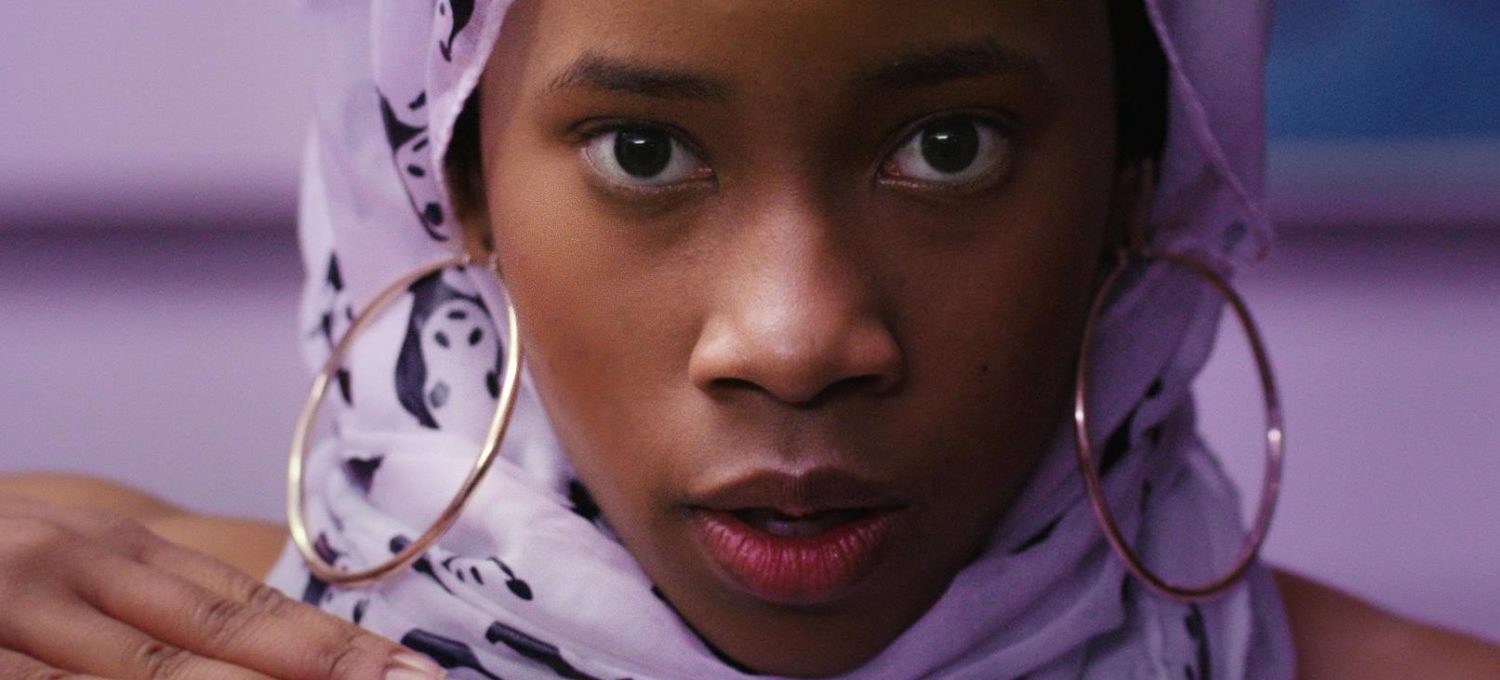The coming-of-age genre, particularly at film festivals, might inspire collective eye rolls. But when the character that is coming of age is a young black teenage girl experimenting with Islam in Los Angeles, then you have a truly unique contribution to the genre and a welcome voice in the world of independent cinema. Such is the case with Nijla Mu’min’s Jinn.
Summer (Zoe Renee) is a typical high school senior: she’s obsessed with Instagram and pepperoni pizza, hangs out with her friends, practices her dance routine for the senior talent show, and anxiously awaits college admissions letters. Her experiences become less “typical” when her recently divorced mother Jade (Simone Missick) visits the local masjid and slowly converts to Islam. Empowered by her new spirituality, Jade encourages (forces) Summer to join her. But Summer is hesitant in light of both her individuality—she doesn’t want to cover her ever-changing hair with a scarf—and her budding sexuality, which can be at odds with more conservative elements of Islam. Things get more complicated when she falls for Tahir (Kelvin Harrison, Jr.), a classmate who is also active in the local masjid.
Jinn is an accomplished film for a first feature. Mu’min layers her narrative with complex cultural, religious, spiritual, and personal themes. They are both specific to Summer’s experience as a young black teenager in a Muslim community but simultaneously universal. Substitute the masjid with a church and the Quran with a Bible and the narrative would still work, although it wouldn’t feel as fresh. But the generational differences, conservate approaches to teenage sex(uality), and the tensions between more liberal expressions of traditional beliefs and practices would ring true.
Sexuality is a major theme in Jinn, as is the exhibitionism inherent in social media. Summer is a victim of body- and slut-shaming within the Muslim community, but she also perpetrates it as well, attacking one of her best friends for her rotating boyfriends. Thankfully, the film counters this with one of the most intelligent and level-headed exchanges between parents and teenagers regarding sex, one that understands the seriousness of the act without over-prioritizing abstinence and points to the short-sightedness of teenagers while still respecting their individuality and sexuality.
Along with Mu’min’s original story, Jinn really benefits from stellar performances from the entire cast, but specifically Missick and Renee, who absolutely shine. Many viewers will likely recognize the former from Netflix’s Luke Cage series, while others will soon regard this as Renee’s breakout role. Jinn deserves a wide audience and hopefully will enjoy one. At the very least, it’s the kind of first feature that is sure to launch and propel several careers.
Jinn premiered in the Narrative Competition section here at SXSW.
